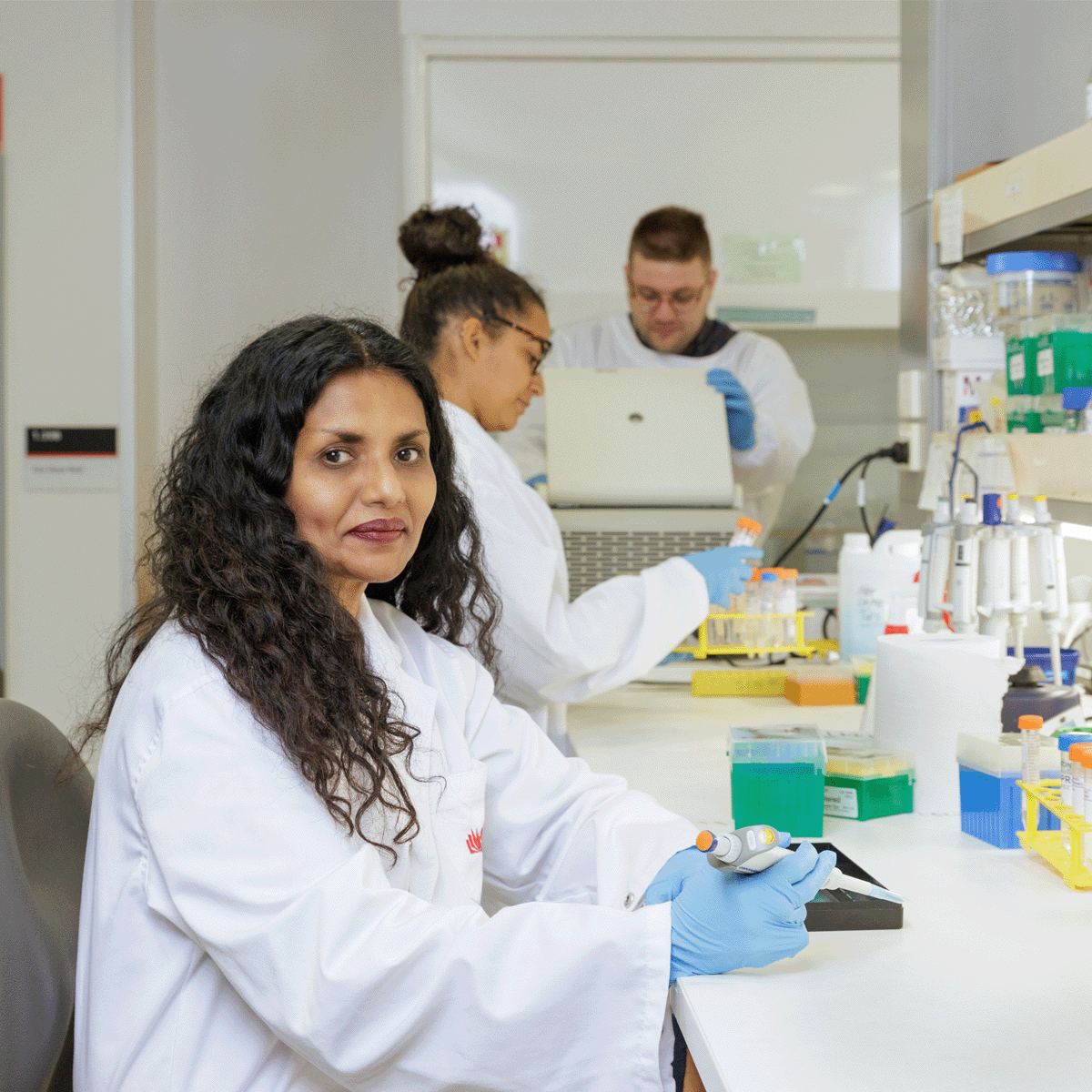Internationally renowned cancer researcher, Professor Chamindie Punyadeera, is calling for an urgent Human Papillomavirus (HPV) throat cancer screening trial in Aboriginal and Torres Strait Islander communities, after a world-first saliva test she developed detected early throat cancer in a person who had no symptoms and no clinical signs of cancer.
Professor Punyadeera said HPV infection is now the leading cause of cancers in the oropharynx (tonsils and tongue base area of the throat).
“In 2020, during an HPV-prevalence study, 665 healthy individuals gave a salivary oral rinse,” Professor Punyadeera said.
“This non-invasive test picked up HPV-DNA in the saliva sample from an infected healthy person. The patient was found to have a 2mm squamous cell carcinoma on the left tonsil which was treated by tonsillectomy. This has given our patient a high chance of cure with very straightforward treatment.
“This discovery is a game-changer as HPV throat cancer is notoriously difficult to detect. These cancers can often go undiagnosed until they have reached an advanced stage due to a lack of effective diagnostic tools, resulting in low survival rates.
“Before we can introduce a test and get it approved by the Therapeutic Goods Association, we need to demonstrate in a cohort trial that we can replicate our finding of detecting cancer in high-risk groups, such as men over the age of 45 years with multiple sexual partners and Aboriginal and Torres Strait Islander people.”
For cancer survivor, Wayne Waller, an early HPV detection test would have saved him months of pain and suffering after being diagnosed with Stage 4 HPV throat cancer in 2017.
“Around March 2017 I coughed up blood. At the time I was on holidays in Busselton and doing a lot of welding and grinding so the doctor said it was probably related to that and not to worry,” Mr Waller said. “For the next few months I often felt like I had the taste of blood in my mouth, then in October that year I coughed up a fair bit of blood so decided to go to the hospital.
“After a number of GP and specialist visits, tests, scans and an MRI, a biopsy was taken and I was diagnosed with Stage 4 HPV throat cancer.
“I was so shocked as I knew women could get cervical cancer from HPV, but it never occurred to me that people could get throat cancer from HPV.
“The treatment was so brutal and included 37 rounds of radiation and three rounds of chemotherapy. It took a massive toll on both my physical and mental health.
“I couldn’t swallow or eat and went from 96kgs to 73kgs. There was also a very real possibility I would need a feeding tube for the rest of my life. It got to the point where I couldn’t handle it anymore, but luckily I had great support around me so was able to get back on track mentally. “On 20 April 2023, I went back to my oncologist and I am now five years clear which is an amazing feeling.
“If we can begin clinical trials as soon as possible to develop a saliva test for HPV head and neck cancers caused by HPV, then hopefully, in the very near future, no one will have to go through what I endured in 2018.”
Professor Chamindie Punyadeera is the keynote speaker at the WA Department of Health Cancer Network’s Head and Neck Tumour Collaborative, Thursday 11 May 2023, hosted by Cancer Council WA’s Western Australian Clinical Oncology Group.
Cancer Council WA Cancer Education and Screening Manager, Melissa Treby, said they were honoured to have Professor Punyadeera in Perth as the guest speaker.
“Cancer Council WA is thrilled Professor Punyadeera will be joining us in person for our symposium on salivary oral rinses which can predict HPV throat cancer,” Ms Treby said.
Find out more
- Find out more about our funding opportunities
- Donate to our cancer research projects
